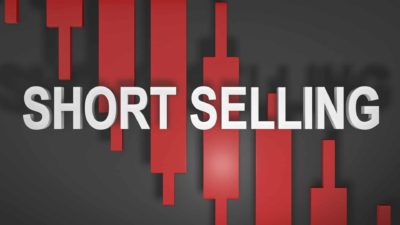Predictably unpredictable? Or unpredictably predictable?
Trying to guess the next direction of daily share price moves on the ASX is like trying to guess whether the next roulette spin comes up black or red. You'll get it right sometimes, but never for long.
Trying to guess US President Donald Trump's next policy move is a different story.
Trump has long prided himself on his unpredictable negotiating style. Whether its international trade deals, historic peace negotiations, or domestic budget proposals, one day he appears open to compromise only to slam the door the next day before once more cracking that door open.
The idea is to keep your opponents on the back foot, consumed by doubt. And it's a tactic that's clearly served Trump well.
But here's the thing.
If you base your style on unpredictability, the unpredictable become predictable.
Let me reach back to an article I penned yesterday to show you what I mean. (You can read that article here.)
Yesterday I pointed out how our modern 24/7 connected world has handed big name politicians a larger impact on daily share price swings than at any time in history. I used 2 headlines from the Sydney Morning Herald to illustrate that point.
Here's the first one, published on Tuesday, 'ASX set for more gains as Wall Street bounces higher on Trump, stimulus'.
And here's the second one which was published Wednesday, 'Wall Street dives as Trump orders halt to stimulus talks until after election'.
In light of that, yesterday I wrote:
If you're prone to motion sickness, you may want to reach for the Dramamine. With the last 3 years as a guide, President Donald Trump's policy backflips have a penchant for repeating themselves.
Indeed, we didn't have to wait long.
This morning I ran across this headline in the Australian, 'Markets rise after Trump flip on stimulus'.
Yesterday (overnight Aussie time) Trump tweeted, "The House & Senate should IMMEDIATELY Approve 25 Billion Dollars for Airline Payroll Support & 123 Billion Dollars for Paycheck Protection Program for Small Business."
Predictable or not, it's important for investors to have a plan they're comfortable with when dealing with today's constant stream of coronavirus news, and the accompanying political wrangling over central bank and government stimulus packages.
Stay nimble or stay the course?
If you're happy to monitor your portfolio on a daily basis and potentially sell in and out of shares based on your expectations of coming share price moves, then you may like this advice Bloomberg reports from Terence Wu:
Assuming that Trump doesn't flip-flop on his stance on the fiscal stimulus package, we think remnant hopes of reviving the risk-on, reflation trade may be put to rest for now.
Wu, a currency strategist in Singapore at Overseas-Chinese Banking Corp., warned investors should "stay nimble on shifting political winds".
Tracie McMillion, global head of asset allocation strategy at Wells Fargo Investment Institute, takes a different view. One more closely aligned with us Fools.
Addressing the barrage of coronavirus headlines warning of the rapid new spread across Europe and the Americas, McMillion told Bloomberg:
It's important to look through those headlines and the disruption that they're causing and look to the potential for better growth next year and the potential for market gains possibly through the end of this year and into next year.
Turning our attention to the S&P/ASX 200 Index (ASX: XJO), the potential candidates for share price gains this year and into next year are myriad.
Tracking the budget's likely gainers
One area that analysts are particularly keen on in the wake of the Government's new budget is the industrial sector.
The federal budget contains $1.5 billion to spur the Australian manufacturing sector, as well as $14 billion in new infrastructure spending. That should offer a welcome tailwind for the share prices of well-run logistics property owners.
One share that's still trading well below its February levels is Stockland Corporation Ltd (ASX: SGP). Stockland's 31 logistics properties total 1.3 millionsq m, with an ownership interest valued at $2.9 billion.
Stockland isn't uniquely invested in logistics. In fact, its residential footprint in considerably larger. But the new budget, relaxed lending rules and continued record low interest rates should help the residential side of its business as well.
Stockland's share price reached 11-year highs on 20 February. From there, the share price crashed 67% through to 23 March. It's come roaring back from that low, up 124% at time of writing.
But that still leaves Stockland's share price down 27% from the 20 February peak.
If it can regain that high in 2021, which I believe is quite possible, that represents a 37% gain from today's share price.
Of course, Stockland is just one of many strong ASX shares likely to see share price gains as the Australian and global economies soak up record government stimulus and get back up to speed.
Happy investing.








